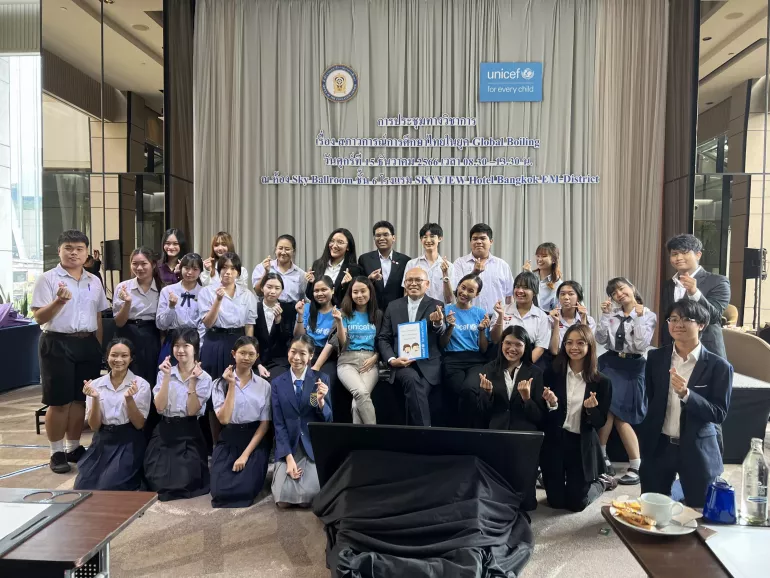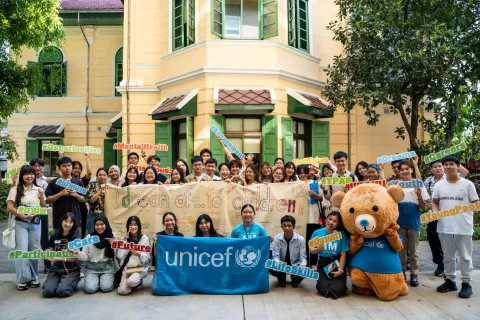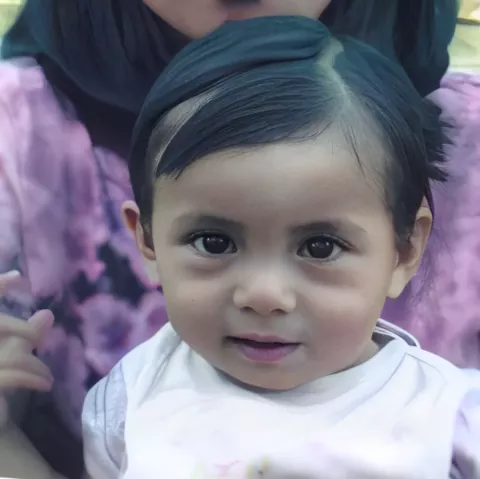“In Thailand, education can feel like a lucky draw,” says Monprayiya “Biwtie” Lobnongbua. “If you are born in the right place or have a good supportive family background, you can be lucky and get a good education. But many people, including many of my friends, aren’t so lucky.”
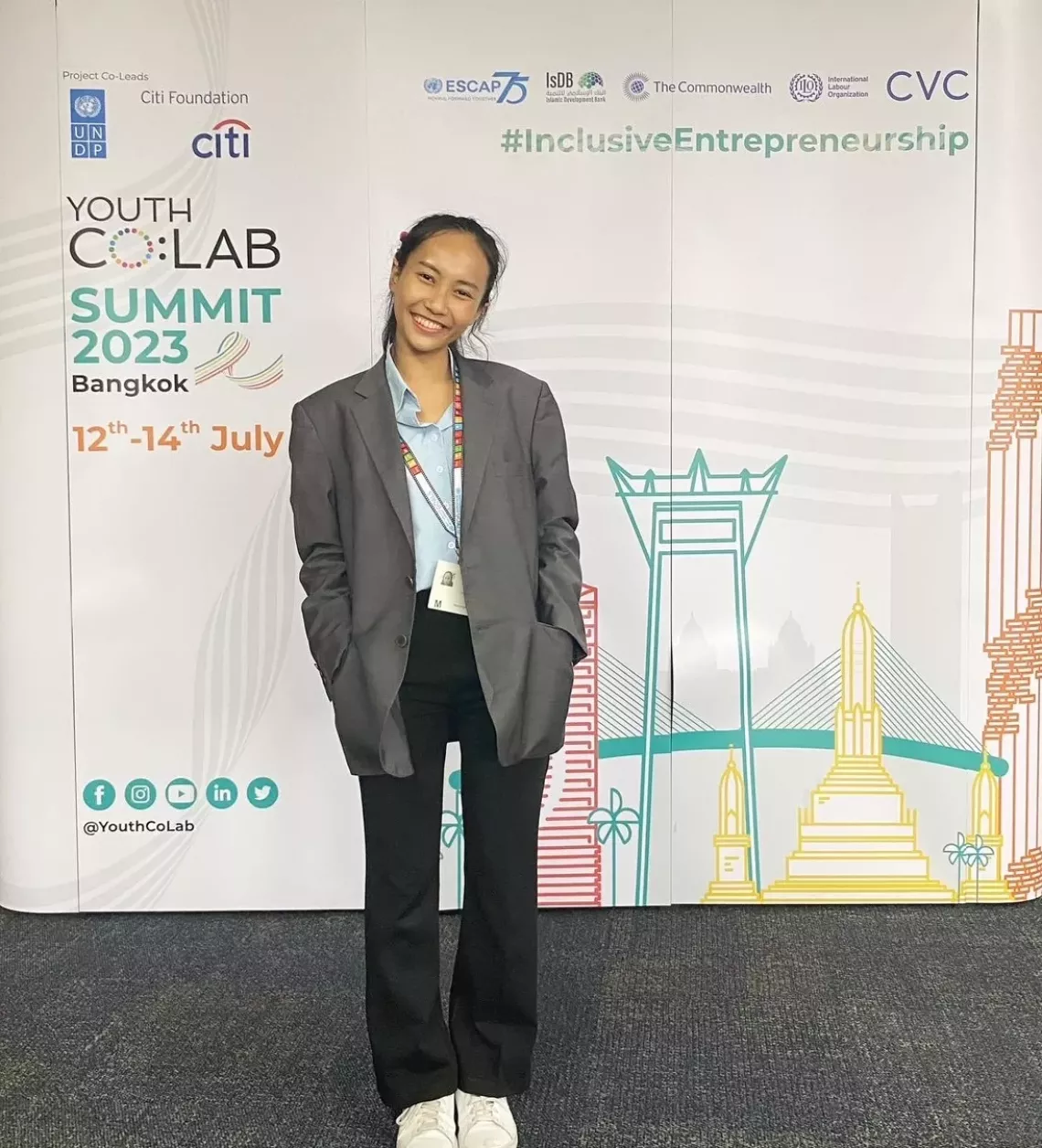
Biwtie, 27 years old, from Lopburi Province, has strong views and powerful insights into education in Thailand, thanks to her own education experiences, and her leadership role in the youth network Kindness Leadership Community. As 2023 ended, she and 39 other children and young people had the opportunity to express their views and recommendations for reform directly to the most important decision-makers in Thailand’s education system, including the Education Council and the new Minister of Education. In a series of face-to-face meetings, they presented their Youth Declaration on Transforming Education in Thailand and answered questions in lively, fruitful discussions.
As a result, the Office of Education Council pledged to incorporate the youth findings and recommendations into new policy reflections which will shape the reform of Thailand’s education system in the years and decades ahead. This milestone achievement was the culmination of 12 months of work involving 767 children and young people, under the UNICEF-supported Youth-Led Advocacy For Transforming Education Initiative.
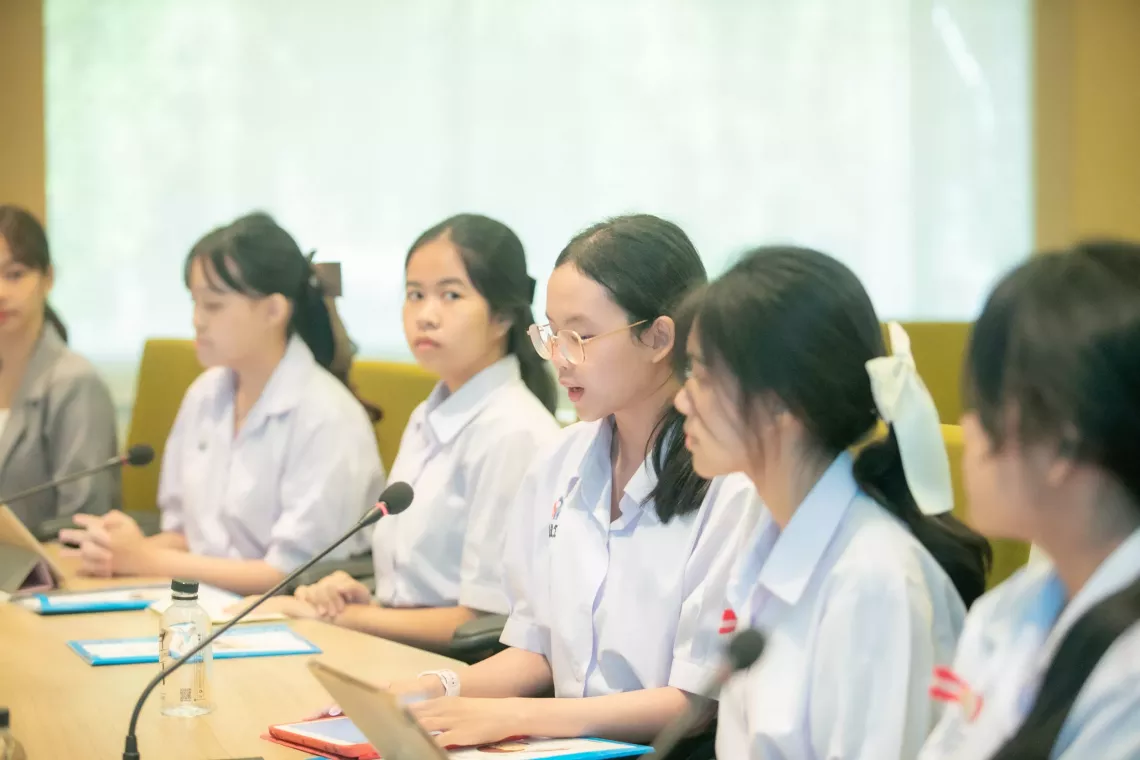
These bold steps forward in Thailand are part of a global movement to rethink and reform education for children around the world. Many factors have made education a matter of pressing global concern, including learning loss caused by the pandemic and a growing climate crisis which requires a new approach to science, technology and behavior, with education playing a crucial role. In September 2022, the United Nations convened a Transforming Education Summit in response to the global crisis in education, a crisis the UN called “one of equity and inclusion, quality and relevance”.
In Thailand, these problems exacerbated existing challenges with the education system. As Biwtie described at the start of this article, inequality is a persistent problem, and there is a widely recognised need to modernise school curriculums and facilities. According to the 2022’ “Situation of Children and Youth in Thailand in 2022” - a joint report between the Children and Youth Council of Thailand (CYCT), the Department of Children and Youth (DCY) and UNICEF - less than 40 per cent of young people feel the current education system adequately prepares them for employment.
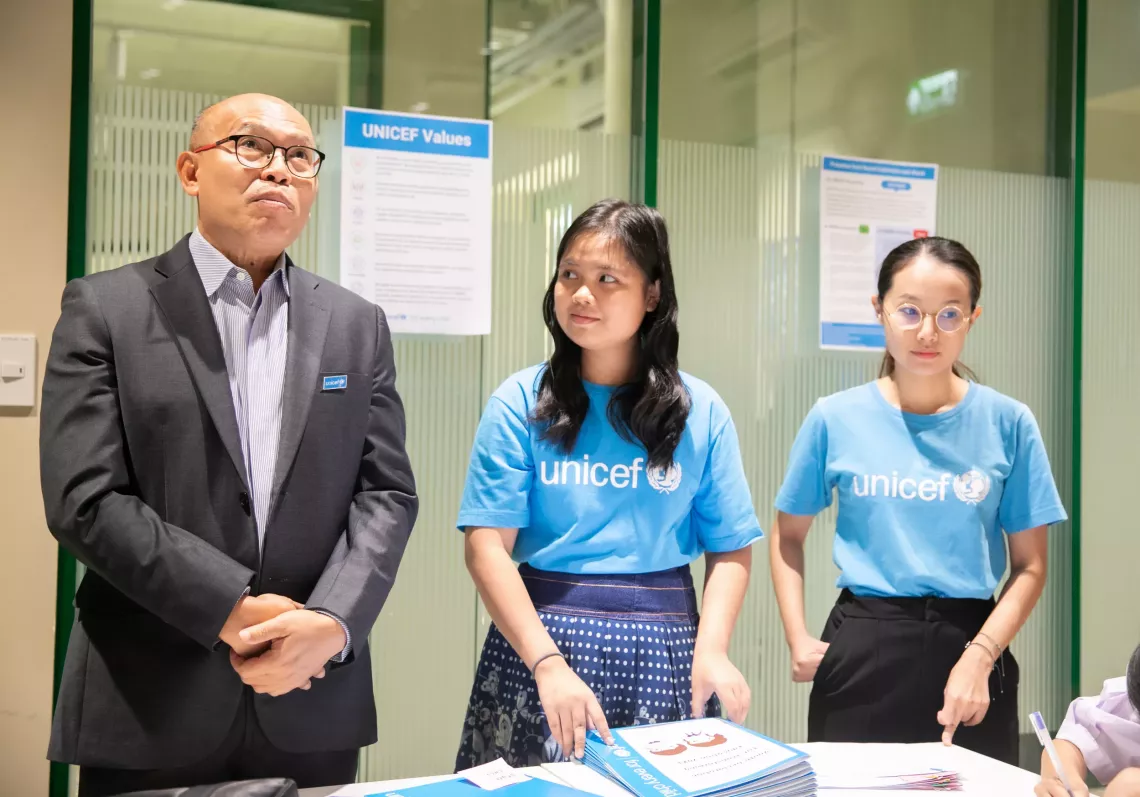
UNICEF was already working closely with the Royal Thai Government on education reforms, but the Transforming Education Summit provided a catalyst to collaborate more closely and ensure the children and youth voices were heard. “I met with many education stakeholders in the Government following the Summit,” says Rangsun Wiboonuppatum, Education Specialist for UNICEF Thailand. “We agreed children and young people had a lot of important things to say on education, we could see it in the content they were creating online. But there needed to be a framework to collate their experiences, views and recommendations. That led to the Youth-Led Advocacy For Transforming Education Initiative.”
UNICEF set the initiative in motion by asking for the support of two members of its Young People Advisory Board (YPAB), Biwtie and Nattanicha “Nicha” Kattiyavara, a 19-year-old student from Nonthaburi Province who runs a school youth network called Student Reflect. “I just have this feeling that I can’t accept things when they aren’t good enough,” says Nicha of her desire to get involved. “Education is opportunity, and everyone deserves fair opportunities in life.”
Despite having jobs and full-time studies, Biwtie and Nicha felt strongly enough to work hard throughout 2023 on utilising their youth networks to collect the views of other children and young people. “It was very important to create an inclusive space for young people to share their perspectives,” Nicha explains. “We wanted to create a safe space where they could really share with one hundred per cent honesty. We also worked hard to represent as many diverse voices as possible, because Thailand is a very diverse country. That was a big challenge. But it was also exciting.”
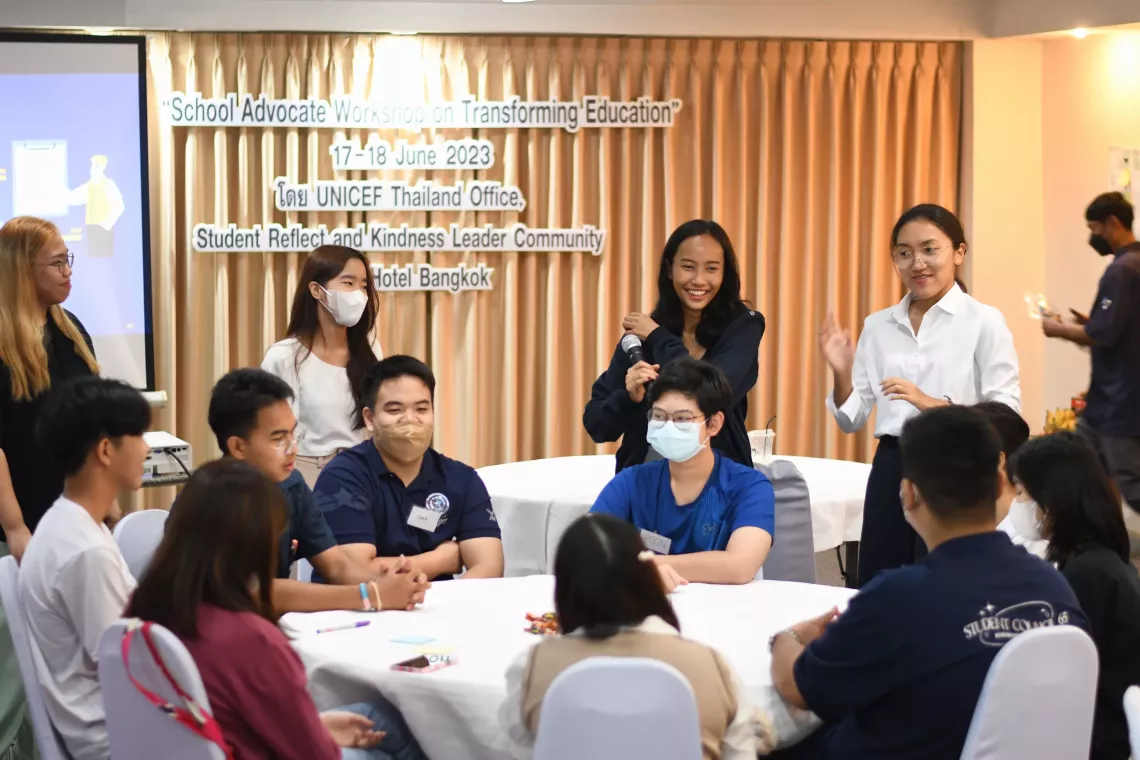
To ensure as many viewpoints as possible were included, Biwtie and Nicha used a combination of face-to-face meetings and online discussions. “I was always amazed by their energy, their passion, their dedication to creating change,” Nicha says with a grin.
Biwtie was particularly struck by the challenges facing refugee children that she consulted. While everyone was affected by the school disruptions caused by COVID-19, she saw that refugee children faced the greatest challenges. “Sometimes there might be four or five children and only one phone between them all. So the schools were asking them to learn online, but how could they? Even after the pandemic was over and they could return to school, they still struggled with the lessons because they really didn’t understand.”
After many months of consultation, the youth advocates worked with UNICEF on creating the Youth Declaration which outlined the major challenges students faced, and recommendations for improvement. The challenges included inequality in schools, mental health challenges faced by students as a result of stress or bullying and concerns that students who struggled were being left behind and inadequately supported.
Both Biwtie and Nicha had experienced many of these challenges first-hand. “I experienced bullying at school about the way I looked,” Biwtie says. “And when I spoke to others who had experienced it, we all agreed that it stops you wanting to see the people who bully you, and that makes you not want to study. And, sadly, some teachers were bullies themselves.” Nicha nods in agreement at Biwtie’s words, and says she also suffered mental health challenges during her school days, such as low self-esteem. While some teachers provided life-changing support, she felt others didn’t care about her personal experiences.
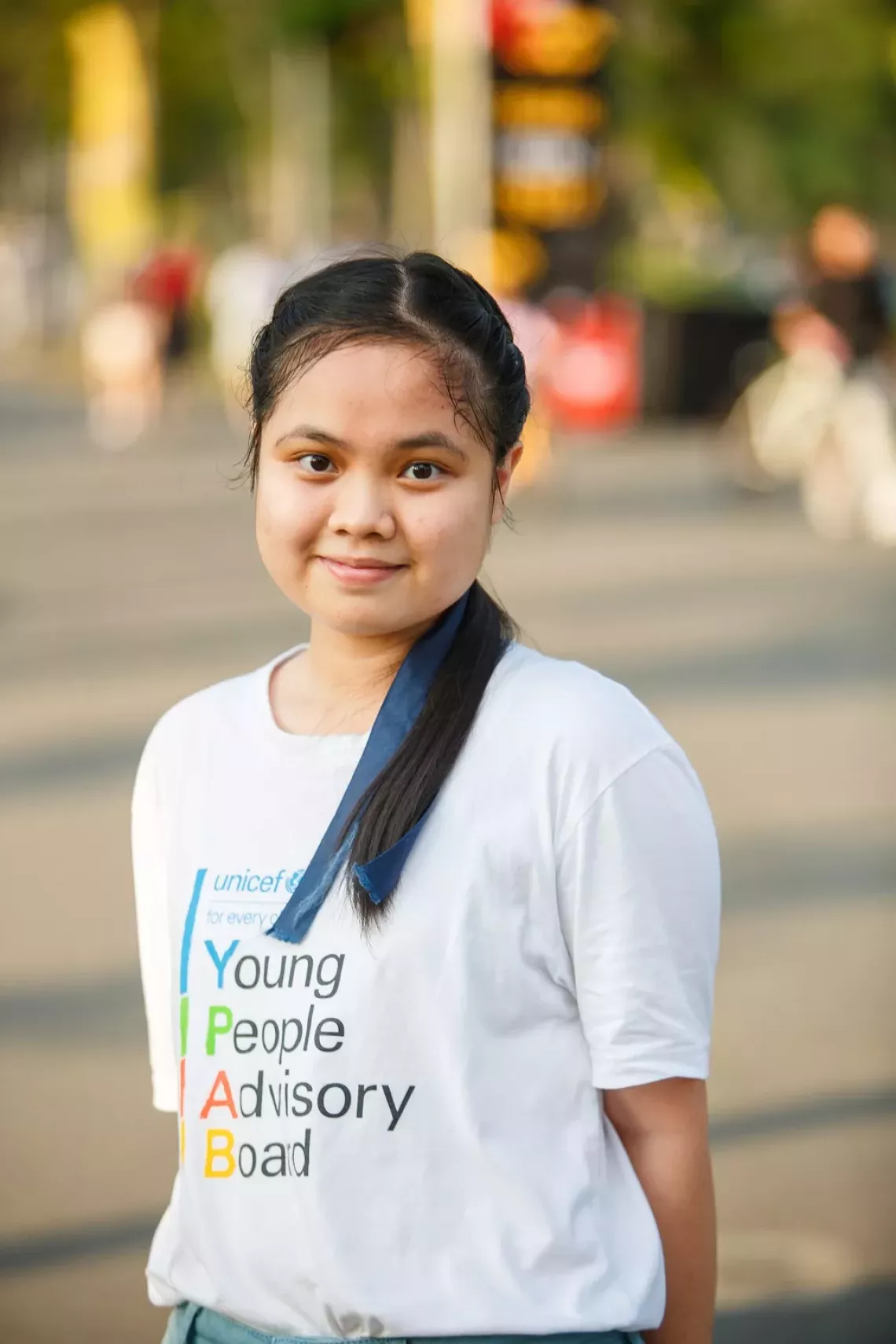
The Youth Declaration didn’t only focus on challenges, however, but also recommended solutions for “safe, nurturing and equitable schools.” These recommendations include improved facilities, changes to learning environments that supported learning for all, empowering more teachers to embrace inclusivity, and a greatly increased focus on tackling poor mental health and bullying in schools.
Nicha and fellow advocates delivered the Youth Declaration to the Office of Basic Education Commission, Bangkok Metropolitan Authority, and the Office of Education Council, including the Minister for Education, at a series of meetings throughout November and December 2023. Nicha was very proud of how her team worked together. “They really got to the point and called for action, highlighting their own experiences. After they spoke, the stakeholders applauded and wanted to speak to the advocates after the session was finished.”
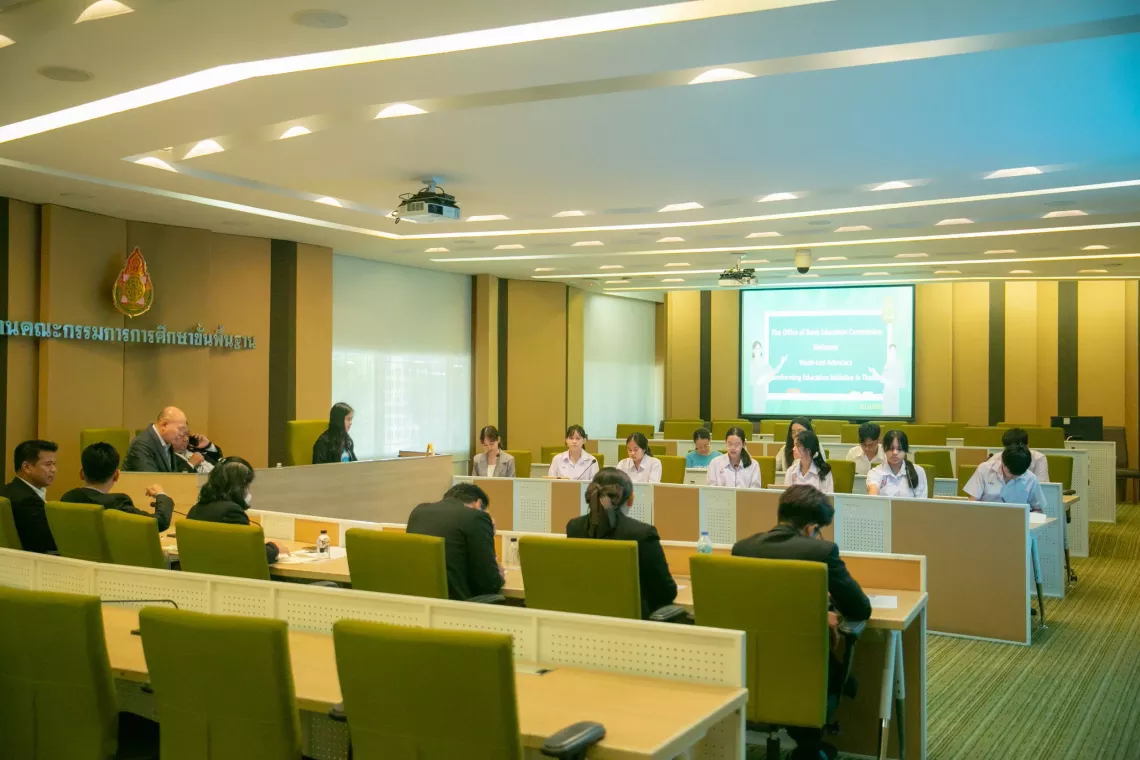
“UNICEF has been building capacity for an advocacy approach for a long time, to benefit both students and educators,” says Rangsun. “At these events we knew we had to make a big impact and make all the education stakeholders excited to keep working with and learning from the youth advocates. It was the first time young people had participated in the education process at such a high level. The fact that the Education Commission will include their viewpoints in their policy reflections makes me proud and hopeful for change.”
As well as empowering meaningful youth participation in Thailand’s educational future and creating real change at the policy level, another goal of the initiative was to empower its young participants. Nicha says that this work has had a significant impact on her personally. “I don’t have much self-confidence normally, but when I work with the students and the schools through Student Reflect, and when I’m working with UNICEF on creating change, I feel proud, and do like myself,” she says. “And now we know its possible for young people to have an impact and we will continue our commitment. I hope this will be seen as the origin of real engagement and participation in education advocacy for young people in Thailand.”

